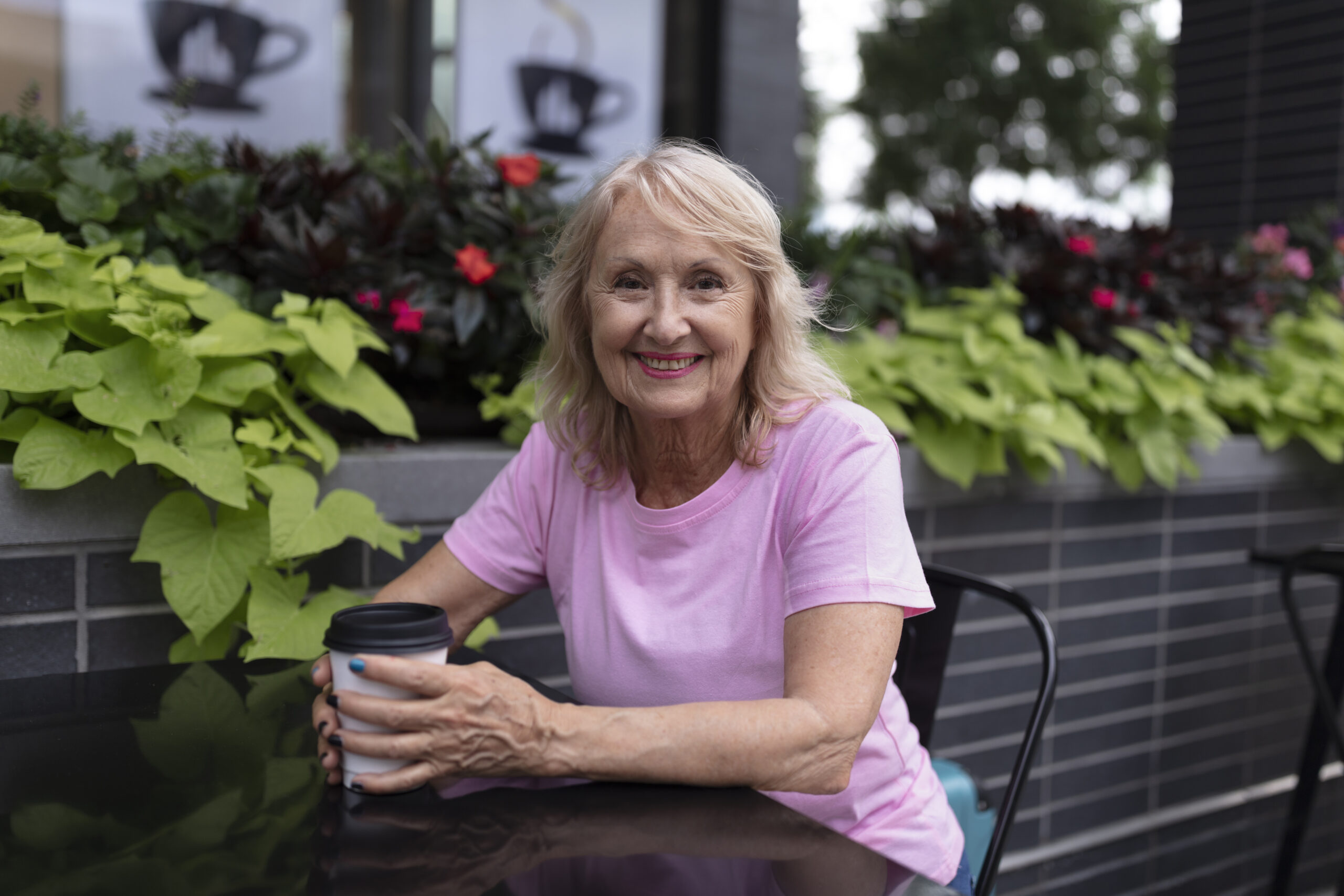This article explains how do you stop feeling guilty when settling a loved one into a residential aged care facility?
Here’s how to cope with guilt.

Even if you have plenty of help from home carers or have time to care for an elderly parent yourself, there will come a point where accessing full-time care in a residential aged care facility makes more sense.
One of the challenges of transitioning a parent, loved one or spouse into full-time residential aged care is the feeling of guilt. Many Australians have a strong sense of responsibility when it comes to taking care of their parents. However, if you know in your heart you are making the right decision, it’s important you find a way to overcome nursing home guilt.
This article discusses this topic and covers the questions about putting a parent in a nursing home (also called a residential aged care facility) against their will.
Why put a loved one in aged care facility?
The challenges of caring for an elderly parent or spouse yourself include:
- Constantly being concerned about them falling or having an accident.
- Being nervous to leave them alone, even for an hour.
- Having too much on your plate to be able to care for your loved one the way you would like to.
- Commitments with work or grandchildren.
- Finding the situation too exhausting or stressful.
All the above are valid reasons to start planning to relocate to a residential aged care facility. These facilities are purpose-built to support the needs of seniors who are unable to live independently. They are comfortable, fully staffed and heavily regulated in Australia.
Read more: aged care jargon and basic aged care concepts explained.
The benefits of full-time residential aged care make up a long list.
Which includes:
- All meals are taken care of
- Meals can be suited to individual needs (e.g., mashed, or pureed food that is easy to chew, swallow and digest)
- Aged care facilities have handrails in showers and along corridors for added safety.
- There will be someone to help with bathing and grooming.
- There is a social environment and a sense of community.
- An aged care facility is secure and safe.
- Facility needs to have a registered nurse on call 24/7 since July 2023.
- Residents have access to geriatric clinicians and allied health providers including ophthalmologists, nutritionists, occupational therapists, and hearing specialists.
- Residents have the option to mingle with others.
- There are regular activities and events.
- Visitors are welcome.
- Some facilities have fall detection monitors.
- Detailed reports about an individual’s health are kept on record.
- Staff are fully trained and specialised in caring for the elderly.
If you’re struggling to meet the needs of an elderly loved one, transitioning to full-time care makes so much sense. The change can also give you peace of mind; for example, you will know someone is available to help your loved one almost immediately if they fall and cannot get up again. This may not be the case if you are living with them and must leave the house for any reason.
How do I stop feeling guilty about my elderly parent or spouse going into care?
One way to prevent feelings of guilt is to consider the level of care your loved one will receive in a residential aged care facility. They will be looked after by trained and skilled individuals who are available around the clock.
Another way to feel connected is to choose a right location of facility. It is important that you will be able to commute to facility as much as you can to visit your loved one.
When you are busy with work, other family members and your personal life, it is difficult to give an elderly family member the attention they need. As a result, their health and well-being can deteriorate. In addition to this, you are not a trained professional, and trying to do a job you’re not qualified for is stressful for everyone.
To overcome guilty feelings for placing a parent or spouse in a nursing home:
- Take the time to visit different aged care facilities together until you find the right facility and care.
- Book your parent in for a respite/short-term stay so they can become familiar with the facility and get to know the staff.
- Start the application process a few months before you think it will be necessary so you can both be emotionally and physically prepared.
- Remind yourself that your loved one will be properly cared for, around the clock.
- Visit your parent or spouse in their nursing home regularly and go out for coffee or on other outings such as the local garden nursery. Try and stick to a schedule so they know when to expect you.
- Call on the phone on the days you can’t be there in person.
- Be proactive about your parent’s care and stay in touch with the staff.
The other thing to do is encourage an open conversation with your parent or loved one. If they are consistently refusing to go into care, ask them why. The answer may be, “Because I’m afraid I won’t see you again.” Or “Because I don’t want to leave my belongings behind”.
When you have an idea of why your loved one is feeling reluctant, you can take steps to address their concerns. Taking a tour of an aged care facility is often a good way to break through resistance, so your loved one can see what a lively and welcoming place an aged care facility can be.
Unless you are a nurse or an aged care worker yourself, it can be progressively more difficult to look after a senior, particularly if they have special needs around eating, bathing, and taking medication. If they are in experienced hands, they will soon become used to their new residence.
Explain to your loved one you are feeling overwhelmed and pressured. When they see things from your perspective, they may be more accommodating of the change, so you feel less guilty.
If you’re looking into a particular facility, you may wish to read reviews others have posted online together. This can generate a more positive feeling around the change for both of you and stop you from feeling guilty.
Can you put someone in an aged care facility without their consent?
You will no doubt feel ‘aged care guilt’ if your loved one is reluctant to make the change. When it comes to putting someone into care and who makes the decision, it’s not 100 per cent black and white.
If an individual can make decisions on their own, they cannot be forced into an aged care facility by a family member, by social services or by a doctor. Unfortunately, if you are worried about elderly loved one but the person does not want to relocate to full-time care, there is very little you can do outside of offering gentle encouragement and sharing information about their options.
An exception to this may apply if the status of Enduring Guardian has been granted.
In Australia, Enduring Guardianship is a legal document that allows a person to nominate someone else to make decisions on their behalf, should they become unable to make decisions for themselves. It relates to lifestyle, accommodation, and medical care.
Read more Planning for the future – guardianship and enduring power of attorney.
If your elderly loved one is no longer able to make decisions for themselves and a doctor has confirmed this, you may be able to make the decision. Putting a parent in a nursing home against their will is never ideal but it may be necessary for their safety and well-being.
You will find more information about Enduring Guardianship on the My Aged Care website. Take the time to have a look at the relevant information for your state.
When it comes to being appointed guardian, it’s a good idea to have wishes and agreements in writing in advance. For example, if your loved one is getting on in years, talk about what decisions they would like you to make on their behalf and make a record of what you both agree to. This will make it easier to act if the need arises.
How to place someone in an aged care facility?
To start the conversation about transitioning to this living arrangement, make an appointment with your loved one’s GP and attend it with your loved one. You can bring up the topic and the GP can explain the options and benefits. Often, the voice of an individual who is less personally attached to the situation can trigger more rational conversations.
Your GP will refer you for an assessment with an Aged Care Assessment Team. This assessment involves a check of abilities and well-being as well as a recommendation based on the results.
If the result of an ACAT is a recommendation for residential aged care, you can take the next steps to find a suitable facility. Some aged care facilities may have a waiting list so try to make the arrangements before the need is urgent.
Find out more about the ACAT here: ACAT Assessment Guide – everything you need to know (agedcaredecisions.com.au)
Once you have completed the ACAT and received a recommendation for full-time care, you can take the steps to tour the aged care facilities and figure out how to pay for the accommodation.
Want to find a suitable aged care home for your loved one? Visit Aged Care Decisions today.
Can a person sign themselves out of an aged care facility?
Aged care facilities are set up with a front desk that requires individuals to check in and out. This is to ensure personal safety and is especially important for residents who are suffering from dementia and may be confused about where they are.
In terms of changing to a different aged care facility, it is possible under the terms of the contract. If you have a loved one who wants to relocate to a different facility, you should be able to help them do so.
Fill your details here to receive a free call to help you find suitable aged care facility for your loved one. Contact Aged Care Decisions today.
Aged care is an important and necessary service, but the right decisions must be made when it comes to choosing a facility for your loved one.
Aged Care Decisions assists families at every stage of the aged care or home care journey. We are partnered with over 75% of aged care facilities across Australia. We assist tens of thousands of families each month.










